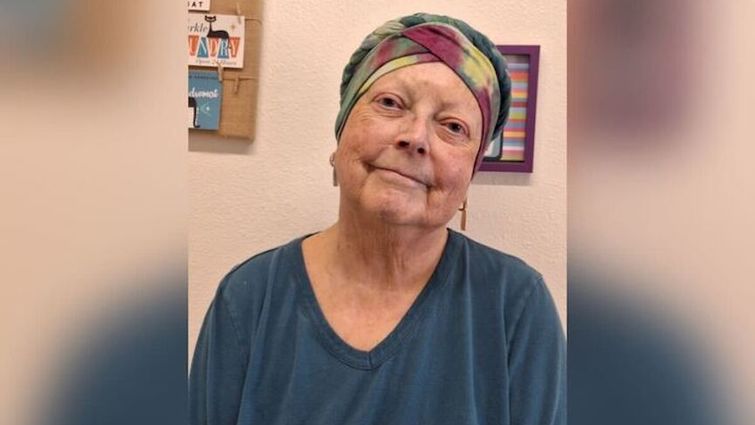

In 2014, Celia Abbott, then 62, noticed unexpected bleeding despite having gone through menopause years earlier. "I knew something wasn't right," Abbott said.
She made an appointment to visit her primary care physician, which led to a biopsy and a diagnosis of endometrial cancer, a disease that develops in the lining of the uterus. Abbott was stunned and scared. But she quickly found herself under the care of Yevgeniya Ioffe, MD, a gynecologic oncologist at Loma Linda University Health, a partnership that Abbott counts as one of her biggest blessings.
The first round of treatment included a robotic hysterectomy with staging, which removed her uterus and other reproductive organs. "I was in and out of the hospital within a day," she says, but her recovery wasn't that simple. Abbott underwent brachytherapy, a type of internal radiation, which involved placing radioactive isotopes inside her body over five days in isolation. "It was awful, but I thought, 'Let's do this once and never again,'" she said.
Just two years after her initial remission, Abbott's body started sending signals again — abdominal pain and kidney issues.
"We were optimistic that we removed all of the cancer, but it came back in 2016," said Ioffe.
Scans confirmed that her cancer had metastasized, wrapping around her abdominal wall and left iliac artery. The iliac arteries are a set of blood vessels that provide blood to the lower body. "I never felt completely right after the first treatment," Abbott said, admitting that she always had an unsettling feeling the cancer would return.
Abbott underwent a complex 10-hour surgery in conjunction with vascular and urologic surgeons to address the recurrence. According to Ioffe, about 20 to 30% of endometrial cancer patients experience a recurrence.
The physical challenges were immense, but the emotional toll weighed heavily, too. Being single and without children, she felt the weight of fighting this disease on her own. "When you talk about cancer, sometimes people get weird. Some friends would distance themselves, or give you the talking points about eating leafy greens or cutting out sugar. Fortunately, I had friends who really stayed with me, and stepped up to help me in so many ways."
Loma Linda's support groups and therapy services provided her with a safe space to cope and heal. "It was important to have people to talk to—professionals and fellow cancer fighters," Abbott said.
Through chemotherapy and radiation, she fought on, completing nine months of treatment by late 2017. But despite a six-year remission, cancer remained a looming threat.
In 2023, during a routine scan, doctors discovered something in Abbott's lung. The endometrial cancer metastasized again.
This time, her treatment involved proton radiation and chemotherapy again. She recently completed her rounds and is taking an immunotherapy drug designed to train her immune system to fight off any remaining cancer cells. "I have 14 more rounds, and I'll be in treatment through 2026, but it's keeping me alive," she said
Looking back, she knows that her decade-long battle has shaped who she is today. She acknowledges that cancer is not only a physical fight but also an emotional and mental one, especially when facing it alone. "There's always that fear that it will come back, but I've learned to live with it."
Currently, Abbott's treatment regimen consists of maintenance therapy. "She's done well so far, and the cancer has regressed. We're hoping for a long remission, possibly even a cure, but we have to monitor her closely," Ioffe said. Regular scans and follow-up appointments help catch any signs of progression early.
For Abbott, her first sign of cancer was postmenopausal bleeding — something that often serves as a warning flag for endometrial cancer. "Bleeding after menopause is abnormal and should always be checked out," Ioffe emphasized. For younger women, signs like heavy or irregular bleeding, pain, and abnormal discharge should also raise concerns and prompt medical evaluation.
As Abbott continues her immunotherapy, she remains hopeful and wants to spread awareness about the importance of early detection. Her message to women during Gynecologic Cancer Awareness Month is clear: "If something doesn't feel right, don't ignore it. Listen to your body."
From breast health to gynecologic care, treatment of pelvic pain and female cancers to menopause management, incontinence, and beyond, Loma Linda University Health cares for the whole woman. To learn more about women's health, visit online.

